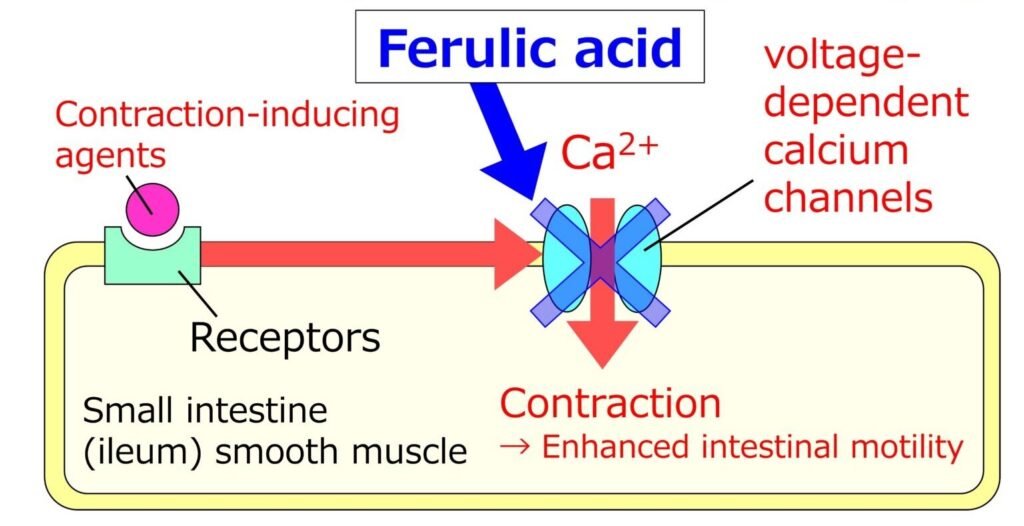A recent study conducted by a research team at Toho University has shed light on the potential benefits of ferulic acid (FA), a polyphenol commonly found in rice bran. The researchers discovered that FA has the ability to suppress intestinal smooth muscle contractions by inhibiting voltage-dependent calcium channels. This exciting finding could pave the way for new dietary-based strategies to manage conditions such as irritable bowel syndrome (IBS) and inflammatory bowel disease (IBD).
Published in the Journal of Pharmacological Sciences, the study was led by Dr. Keisuke Obara, Dr. Kento Yoshioka, and Professor Yoshio Tanaka from the Faculty of Pharmaceutical Sciences at Toho University. Ferulic acid is renowned for its antioxidant and neuroprotective properties and is a component of whole grains, particularly rice bran. While previous research has focused on its systemic benefits, its impact on gastrointestinal motility has remained unclear until now.
Individuals with conditions like IBS and IBD often experience abnormal intestinal movements, which can range from excessive to reduced. The research team set out to investigate whether FA could influence these contractions in the gut. Through experiments using guinea pig ileal longitudinal smooth muscle (ILSM), they found that FA effectively inhibited contractions induced by various neurotransmitters such as acetylcholine, histamine, prostaglandin F2α, and serotonin in a noncompetitive and concentration-dependent manner.
Further studies using vascular smooth muscle cell models revealed that FA also reduced intracellular calcium elevation caused by potassium chloride, indicating its impact on voltage-dependent calcium channels. The researchers believe that FA could potentially serve as a natural modulator of intestinal motility, offering relief for individuals with diarrhea-predominant IBD by calming excessive smooth muscle activity.
However, it’s important to note that in individuals with constipation-predominant IBS or in healthy individuals, FA may overly suppress motility and exacerbate symptoms. While the effective concentrations of FA in vitro were higher than typical blood levels achieved through diet, further research is needed to determine the physiological relevance and potential clinical applications of FA in managing intestinal motility disorders.
These findings lay the groundwork for future research into the development of dietary interventions or supplements utilizing ferulic acid to target gut motility. Clinical trials will be crucial to validate whether these effects can be replicated in humans and to establish the appropriate intake levels for therapeutic efficacy.
For more information on this study, you can refer to the publication in the Journal of Pharmacological Sciences by Keisuke Obara et al. (DOI: 10.1016/j.jphs.2025.05.012). This research opens up exciting possibilities for utilizing ferulic acid as a natural means to manage intestinal motility disorders, offering hope for those suffering from conditions like IBS and IBD.


